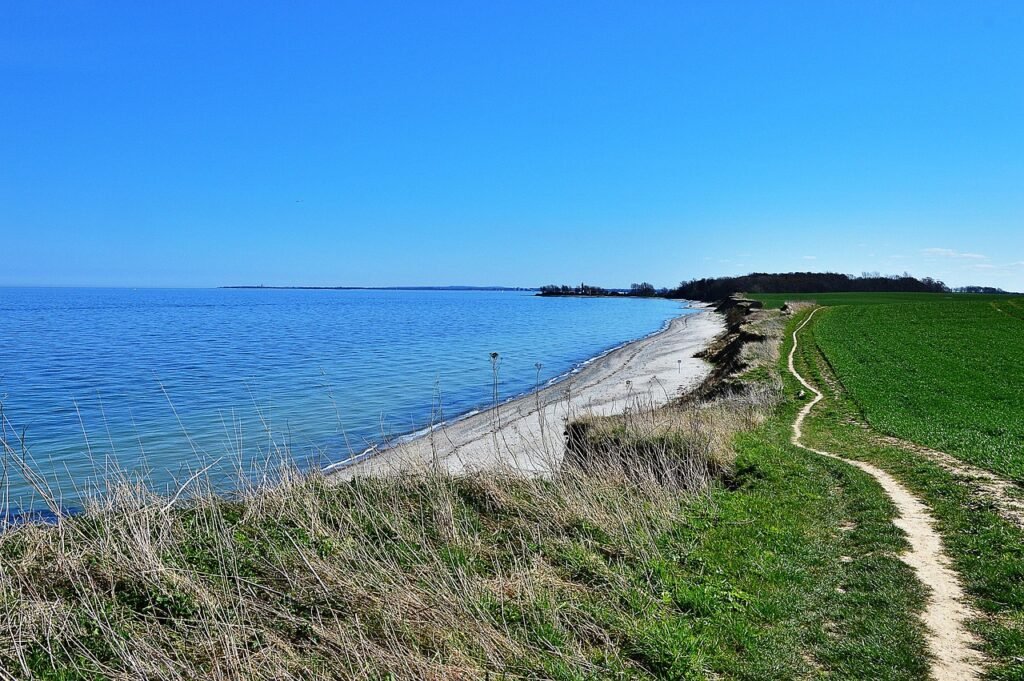Imagine sinking your toes into warm, soft sand, the gentle caress of a sea breeze on your skin, and the rhythmic sound of waves crashing against the shore. Beaches offer a unique escape, a place where you can unwind, reconnect with nature, and create lasting memories. This comprehensive guide explores the multifaceted appeal of beaches, from their diverse ecosystems to the plethora of recreational activities they offer, helping you plan your next perfect seaside getaway.
The Allure of the Beach: More Than Just Sand
Beaches hold a special place in the human psyche. They represent relaxation, adventure, and a connection to the natural world. But beyond the surface appeal, beaches are incredibly diverse and offer a multitude of benefits.
Mental and Physical Well-being
Spending time at the beach is proven to boost mental and physical well-being. Studies show that the sound of waves alters brainwave patterns, promoting relaxation and reducing stress.
- Stress Reduction: The negative ions in sea air are believed to have a calming effect.
- Vitamin D Boost: Sunlight exposure helps your body produce Vitamin D, crucial for bone health and immune function (remember to wear sunscreen!).
- Physical Activity: Swimming, walking, or playing beach volleyball provides exercise and improves cardiovascular health.
- Improved Sleep: The combination of fresh air, sunlight, and physical activity often leads to better sleep quality.
Biodiversity and Ecosystems
Beaches are dynamic ecosystems that support a wide variety of plant and animal life. From tide pools teeming with invertebrates to nesting seabirds, beaches are vital habitats.
- Coastal Habitats: Beaches provide nesting grounds for sea turtles, shorebirds, and other wildlife.
- Tide Pool Treasures: Exploring tide pools reveals fascinating creatures like starfish, crabs, and sea anemones.
- Dune Ecosystems: Sand dunes, often overlooked, provide crucial protection from erosion and act as a buffer against storm surges. They also support specialized plant communities.
Exploring Different Types of Beaches
Not all beaches are created equal. Their composition, geographical location, and surrounding environment contribute to their unique characteristics. Understanding these differences can help you choose the perfect beach for your needs.
Sandy Beaches
The most common type of beach, sandy beaches are formed by the erosion of rocks and shells over time.
- Fine White Sand: These beaches are often found in tropical locations and are perfect for sunbathing and relaxing. Example: Grace Bay, Turks and Caicos.
- Coarse Sand: These beaches tend to be rockier and may be less comfortable for lounging, but often offer excellent opportunities for shell collecting.
- Black Sand: Created from volcanic activity, black sand beaches offer a dramatic landscape. Example: Punalu’u Beach, Hawaii.
Rocky Beaches
Rocky beaches are characterized by their rugged coastlines and are often found in areas with strong wave action.
- Tide Pooling Paradise: Rocky beaches are ideal for exploring tide pools and observing marine life.
- Unique Geological Formations: These beaches often feature stunning rock formations and dramatic cliffs.
- Good for Fishing: The rocky environment provides habitats for various fish species.
Shell Beaches
As the name implies, shell beaches are composed primarily of shells that have been broken down and deposited by the ocean.
- Unique Textures: Shell beaches offer a unique tactile experience underfoot.
- Beautiful Colors: The shells can come in a variety of colors and patterns, creating a visually stunning landscape.
- Good for Collecting: Shell beaches are a great place to find interesting shells (check local regulations regarding shell collecting).
Beach Activities and Recreation
Beaches offer a wide range of activities for people of all ages and interests. From swimming and sunbathing to surfing and snorkeling, there’s something for everyone to enjoy.
Water Sports
The ocean is a playground for water sports enthusiasts.
- Swimming: A classic beach activity, swimming is a great way to cool off and get some exercise.
- Surfing: Catch some waves and experience the thrill of riding the ocean. Popular surfing destinations include Hawaii, California, and Australia.
- Snorkeling and Scuba Diving: Explore the underwater world and discover colorful coral reefs and marine life.
- Kayaking and Paddleboarding: Enjoy a leisurely paddle along the coastline and explore hidden coves.
- Windsurfing and Kitesurfing: Harness the power of the wind and glide across the water.
Land-Based Activities
Even if you’re not a water person, there are plenty of activities to enjoy on the beach.
- Sunbathing: Relax and soak up the sun’s rays (remember sunscreen!).
- Beach Volleyball: A fun and social activity for all skill levels.
- Building Sandcastles: A classic beach activity for kids (and adults!).
- Beachcombing: Search for shells, sea glass, and other treasures washed ashore.
- Picnics: Enjoy a meal with a view of the ocean.
Responsible Beach Tourism: Protecting Our Shores
As visitors, it’s our responsibility to protect the fragile ecosystems of beaches and minimize our impact on the environment.
Reducing Your Footprint
Small changes in our behavior can make a big difference.
- Pack Out What You Pack In: Always take your trash with you and dispose of it properly.
- Avoid Single-Use Plastics: Bring reusable water bottles, bags, and containers.
- Respect Wildlife: Observe animals from a distance and avoid disturbing their habitats.
- Use Reef-Safe Sunscreen: Protect marine life by using sunscreen that doesn’t contain harmful chemicals.
- Support Local Businesses: Choose businesses that prioritize sustainability and responsible tourism practices.
- Leave No Trace: The principles of Leave No Trace are vital for preserving natural spaces and should be followed whenever venturing outdoors.
Supporting Beach Cleanups
Participating in beach cleanups is a great way to give back to the community and help protect our oceans. Many organizations host regular beach cleanups, providing an opportunity to connect with other volunteers and make a tangible difference. Check local listings for beach cleanup events near you.
Conclusion
Beaches offer a sanctuary for relaxation, recreation, and reconnection with nature. From the mental and physical health benefits to the diverse ecosystems they support, beaches hold immense value. By understanding the different types of beaches, engaging in responsible tourism practices, and participating in conservation efforts, we can help protect these vital environments for future generations. So, pack your bags, grab your sunscreen, and get ready to experience the magic of the beach!

